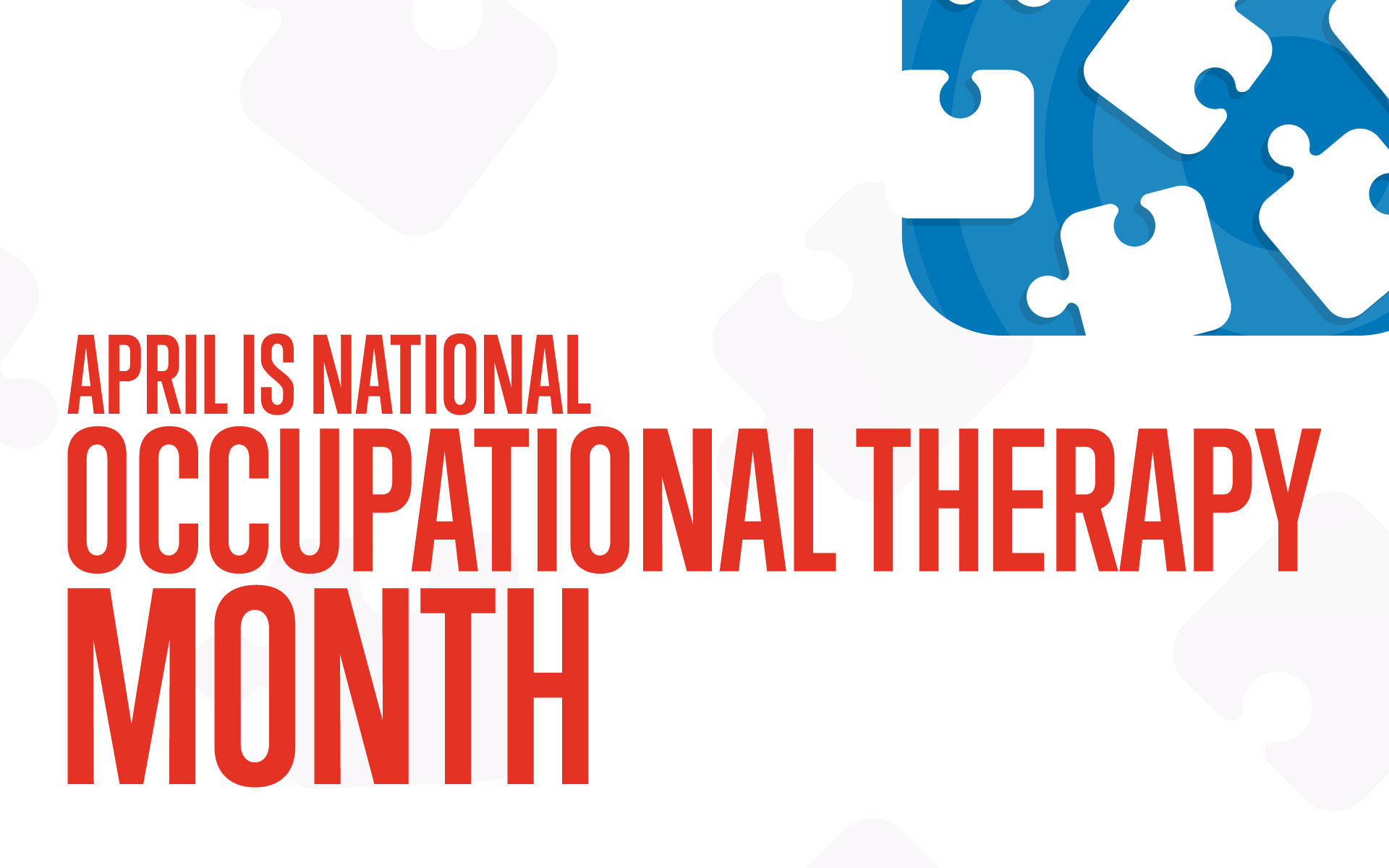
April is National Occupational Therapy Month! For over 40 years, National Occupational Therapy Month has recognized the incredible dedication and impact of occupational therapists and occupational therapy assistants. Established in 1980 by the American Occupational Therapy Association (AOTA), this month-long observance highlights occupational therapy professionals’ essential role in helping individuals of all ages regain independence, improve their quality of life, and engage in meaningful daily activities.
We can trace the roots of occupational therapy back to 100 B.C., when Greek physicians used techniques such as massages, exercises, baths, music, conversation, and travel to treat mental and emotional disorders. However, the profession as we know it began to take shape in the 1800s, when William Rush Dunton Jr., a strong advocate of these therapeutic approaches, helped establish the National Society for the Promotion of Occupational Therapy – now known as the American Occupational Therapy Association (AOTA). This recognition of the practice’s benefits set the stage for a significant milestone in the 1900s when occupational therapy became a formally recognized profession. Pioneering the field, Eleanor Clarke Slagle opened the first school for occupational therapists in Chicago, further advancing the profession’s reach and impact.
What is Occupational Therapy?

Today, the healthcare profession of occupational therapy aims to improve independence and quality of life by addressing physical, cognitive, emotional, or sensory challenges. The practice focuses on helping people of all ages develop, recover, or maintain the skills needed for daily living and meaningful activities, i.e., occupations. Occupational therapists are instrumental in helping individuals overcome barriers that affect their ability to perform everyday tasks.
When is National Occupational Therapy Month?
National Occupational Therapy Month occurs every April and lasts the entire month. This annual month-long observance is an opportunity to recognize what occupational therapists do to help individuals live life to their full potential.
Enhancing Lives Through Meaningful Activities
Occupational therapy helps individuals reach their full potential across different life stages, enabling them to adapt to challenges and live more independently. For example, a pediatric occupational therapist (OT) working with a child with autism spectrum disorder (ASD) might focus on improving the child’s ability to engage in daily activities by addressing sensory processing, motor skills, and social interactions. If the child is overwhelmed by loud noises or certain textures, the pediatric OT may introduce sensory integration techniques, like using a weighted vest for calming or practicing exposure to different textures through sensory bins.
How to Participate in Occupational Therapy Month
National Occupational Therapy Month 2025 provides an excellent opportunity to recognize the impact of occupational therapy and help spread awareness about its benefits. Whether you are an OT professional, a patient, or simply an advocate, there are plenty of meaningful ways to get involved. Whether recognizing an occupational therapist in your life with a thank you note or engaging in a community event, the recognition will help celebrate their work and educate others of its importance. For more information, head to AOTA’s OT Month page, which offers resources and ideas for supporting OT and spreading the word about how it’s changing lives. They also provide National Occupational Therapy Month gifts for purchase to support the profession during April.
Pediatric Occupational Therapy in Modern Healthcare
Occupational therapy has become vital to pediatric healthcare, particularly in addressing mental and physical challenges. In modern healthcare, OT has evolved to encompass a holistic approach that helps children develop the skills necessary to engage in everyday activities, supporting their mental, emotional, and physical well-being. From helping children facing mental health challenges who struggle with socialization to helping overcome challenges with fine and gross motor skill development, pediatric occupational therapists address mental and physical challenges through individualized, holistic interventions focusing on sensory processing, emotional regulation, play, and social skills. A pediatric OTs daily work, whether performed in a facility, school or the patient’s home, helps children navigate the complexities of their disabilities to lead healthier, more fulfilling lives.
Conclusion
The holistic work of occupational therapists is invaluable for addressing many health challenges, both psychological and physical. Occupational therapists and OT assistants help people of all ages participate more fully in life by addressing their challenges, which supports long-term health, independence, and happiness. Help us celebrate these amazing healthcare professionals during National Occupational Therapy Month 2025 in April!
Questions about In-Home Pediatric Occupational Therapy services?
Contact KidsCare Home Health today!















